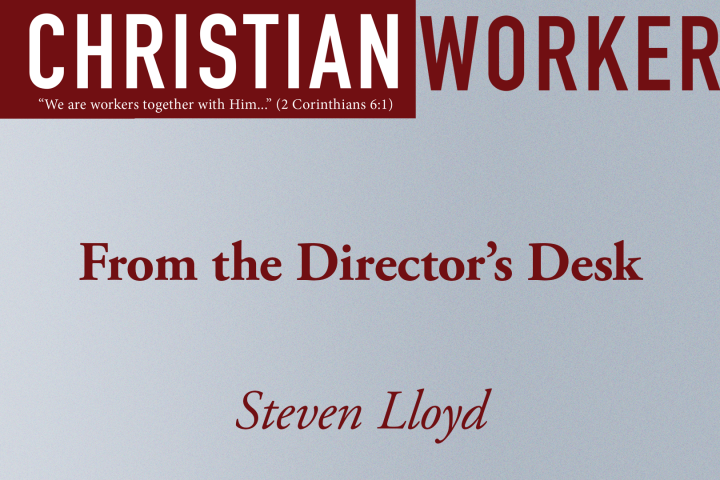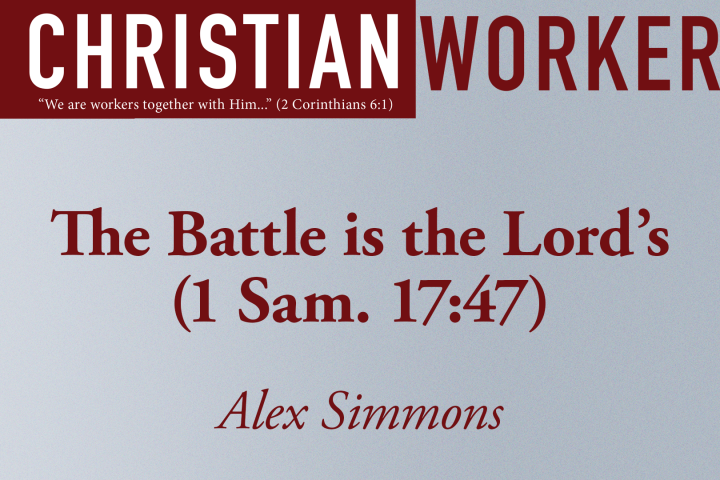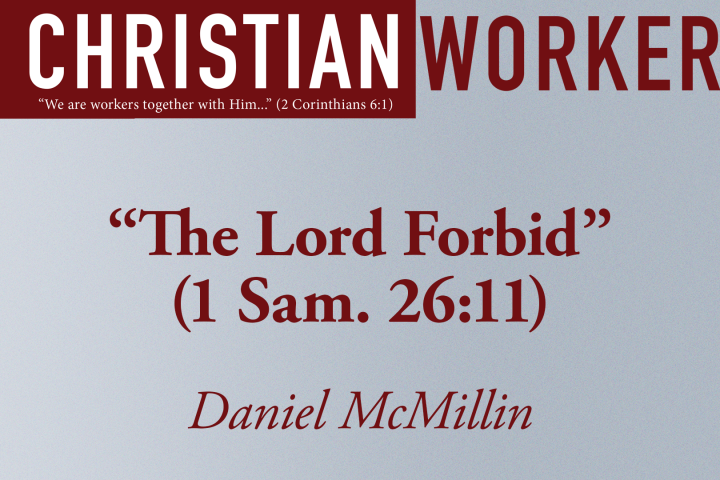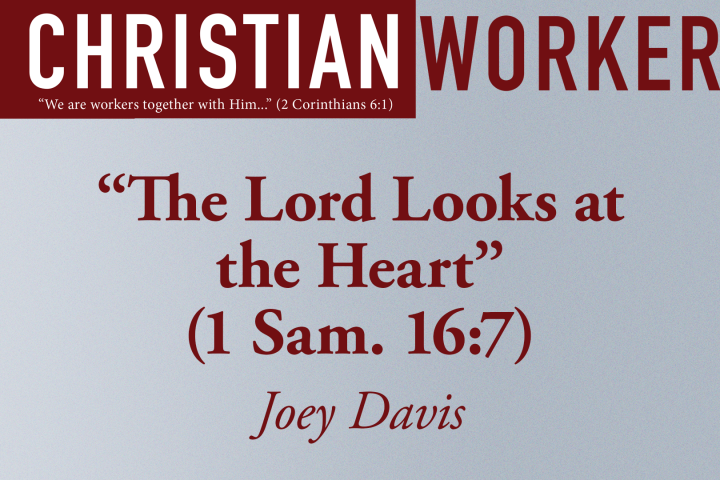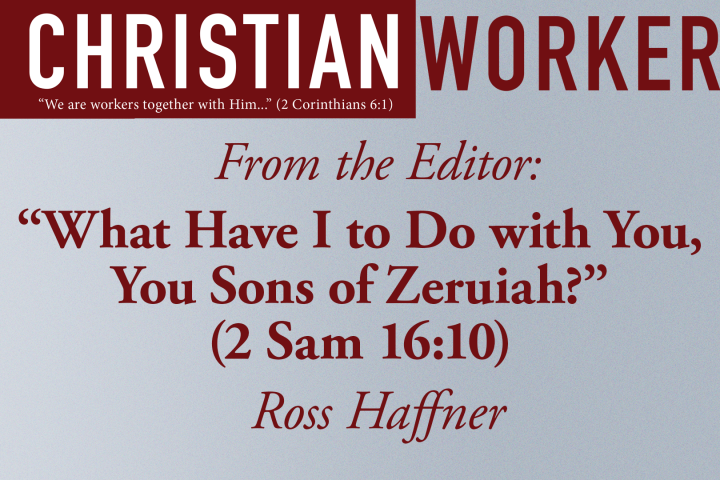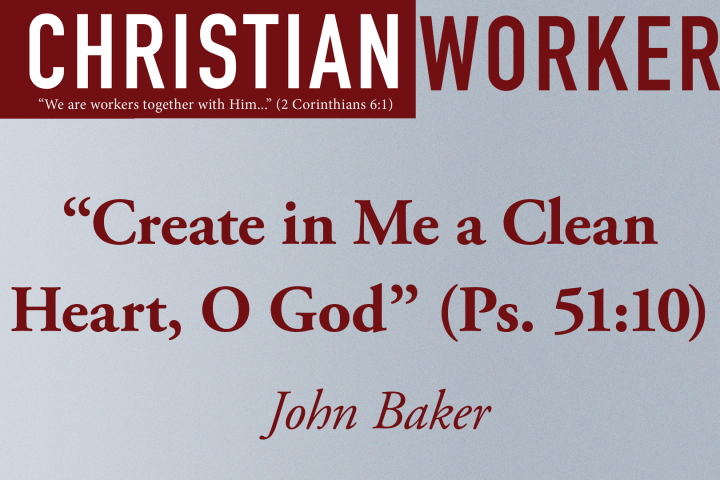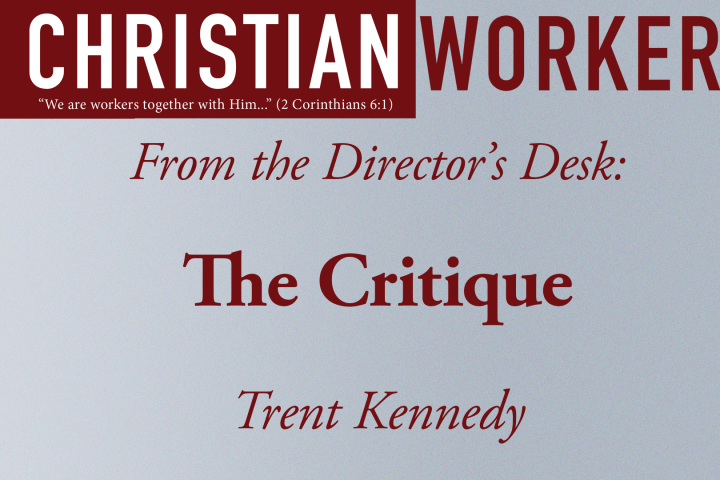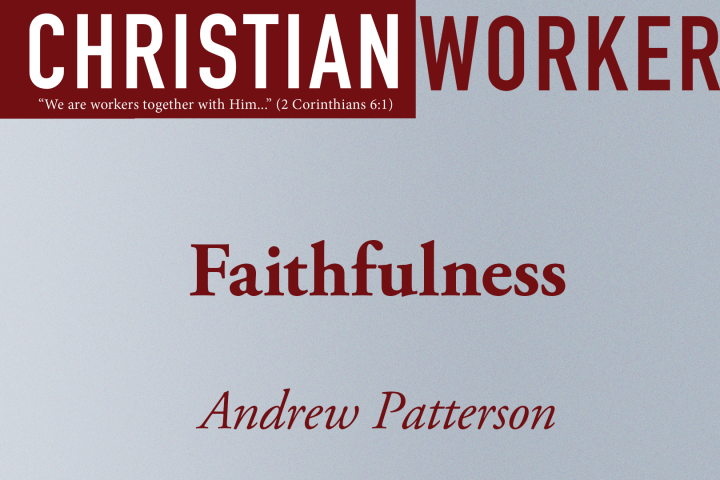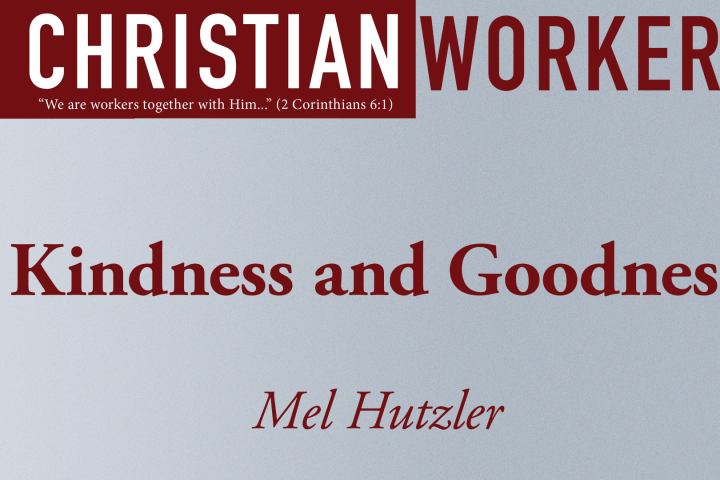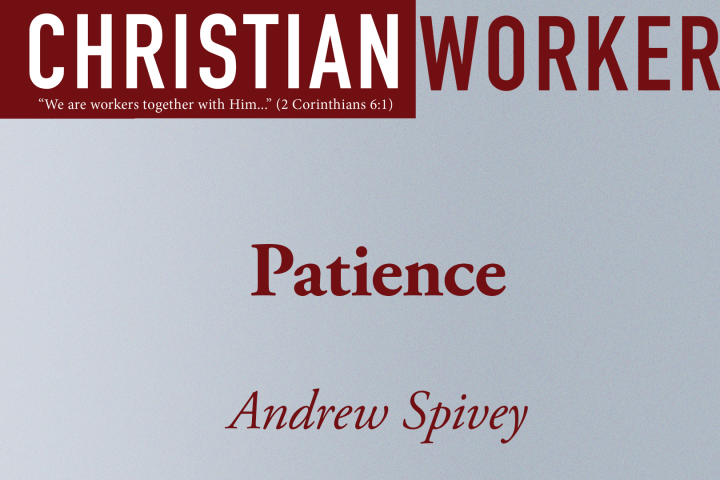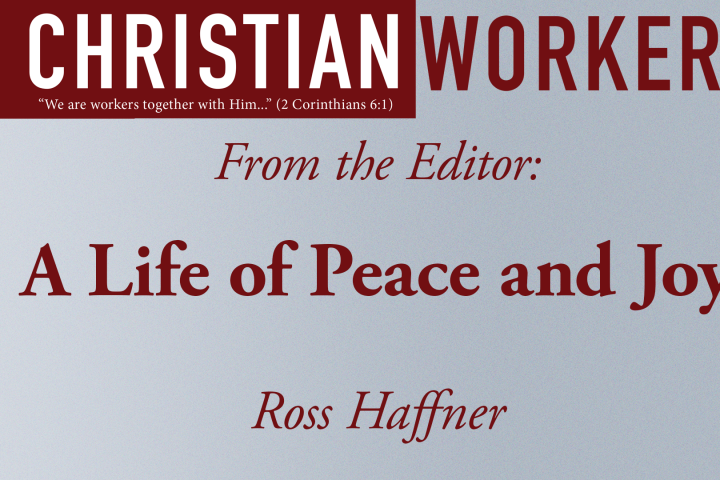Posts by Christian Worker
From the Director’s Desk
At the writing of this note, we are in our second week of the third quarter of the school year. Our Arise Workshop is rapidly approaching—February 26th to March 1st. In conjunction with the Workshop, Rob Whitacre will conduct a “blitz week” on the subject of Evangelism. We have the largest first-year class in our history of forty-eight years. Sixteen students fill the class from young to not so young—which makes for an interesting dynamic. Some students are a year…
The Battle is the Lord’s (1 Sam. 17:47)
I t was a young shepherd boy who proclaimed the words, “the battle is the Lord’s” as he stood face to face with a giant (1 Sam. 17:47). In a valley full of fear, crowded with concern, and packed with panic, those five words were just what the nation of Israel needed. Certainly, David’s statement was one of courage and conviction, but it was also one of great faith. While the king, the nation, and David’s own brothers were greatly…
“The Lord Forbid”
The young shepherd boy who slayed a giant and fought the Philistines now has a target on his head. The king who once loved the boy from Bethlehem became jealous of the rising star and ordered his execution. Throughout Saul’s pursuits, David not only evaded Saul but also had the opportunity to kill the king and take the target off his back. Yet David takes a route that is quite unexpected. In 1 Samuel 24, David and his mighty men…
“The Lord Looks at the Heart” (1 Sam. 16:7)
When God rejected Saul as king, Samuel was sent to the house of Jesse to identify and anoint his replacement. God worked through Samuel to identify David, but God’s method of choosing differed from Samuel’s expectations. When Eliab, Jesse’s eldest, appeared, Samuel anticipated a quick decision: “Surely the Lord’s anointed is before Him!” (1 Sam. 16:6). Samuel quickly learned that more was involved: “Do not look at his appearance or at his physical stature, because I have refused him. For…
“What Have I to Do with You, You Sons of Zeruiah?” (2 Sam. 16:10)
Christians would agree that we should show mercy when we have been wronged (Eph. 4:32, Matt. 5:7). But could we stop ourselves even at our lowest point? In an age of instant online backlash and cancel culture, restraining a sharp reply feels nearly impossible. Yet the Scriptures provide great relevant examples to help. Part of David’s punishment for his sins with Bathsheba and against Uriah the Hittite comes to the forefront through the king’s son Absalom (2 Sam. 12:10-12). When…
“Create in Me a Clean Heart, O God” (Ps. 51:10)
God offers hope and forgiveness to sinners. Psalm 51 is David’s psalm of brokenness, contrition, and sorrow because of his sins concerning Bathsheba and her husband. David could not undo what had been done, but he could find a way forward because of the grace and forgiveness of God. In Psalm 51:10 David pleads, “Create in me a clean heart, O God, and renew a right spirit within me.” Psalm 51 shows us how to seek forgiveness from God. We…
The Critique
Currently, our first-year male students are flying through their first chapel lesson, Wednesday night devotionals, and outside preaching. While we try to break them in slowly, these are usually nerve-racking times. Each one of the thirteen first year guys will have to deliver a chapel lesson every other week or so. This gives them invaluable experience prepping and preaching. After chapel is over, each student faces the dreaded public critique. While we don’t publicly critique every lesson, the first few…
Gentleness and Self-Control
The apostle Paul lists gentleness and self-control among the fruit of the Spirit in Galatians 5:22-23, presenting them as essential marks of a life surrendered to the will of God. These two qualities are closely connected and understanding them will help us to live in a way that better honors God and builds up others. The word translated “gentleness” in Galatians 5 comes from a Greek term which conveys humility, meekness, and a mild disposition toward others. It is not…
Faithfulness
This word (pistis) is usually translated “faith” or “trust” throughout the NT. It often refers to trust in God and belief in His promises (Heb. 11:1-6). However, in the fruit of the Spirit, it means something a little different. Paul is contrasting two patterns of behavior toward fellow Christians in Gal 5: those who upset others’ Christian journeys (Gal 5:7-12) versus those who “through love serve one another” (Gal. 5:13-15). Paul says the first group carries out the deeds of…
Kindness and Goodness
What are the differences and relationship of these words? Goodness (Agathos) is the inner quality of moral integrity, virtue, and uprightness; a commitment to God’s will and what is right. The focus is the heart, character, and motives. For example, choosing to honor God and live righteously even when it’s difficult. On the other hand, kindness (Chrestotes) is the outward demonstration of goodness through compassionate action, helpfulness, and generosity. The focus is on the actions and how we treat others.…
Patience
I n nature, every fruit grows on its own timetable. Some fruits, like passion fruit, papaya, strawberries, and blackberries, can bear fruit in their very first year. But if you plant a pear, cherry, or plum tree, you might wait five to seven years before you ever taste a single harvest. When it comes to growing the fruit of the spirit, you might say patience feels about the same as waiting for a plum tree to grow fruit. Patience may…
A Life of Peace and Joy
Do you expect that if you live right, God will remove your troubles, sorrow, and pain? We sometimes fall into the trap of thinking that suffering is always because of sin, and blessings are always because you’re obeying God. But just because you did the right thing does not mean you will avoid suffering. Romans 15:13 teaches us that we can be filled with peace and joy through the hope found in God’s salvation. What would you give for a…
